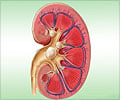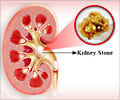- Semin Nephrol. 2008 Mar;28(2):163-73. Nephrolithiasis after bariatric surgery for obesity. Lieske JC1, Kumar R, Collazo-Clavell ML.
- Kidney International (2007) 72, 8–10. Bariatric surgery, hyperoxaluria, and nephrolithiasis: A plea for close postoperative management of risk factors. J G Kleinman.
How Common are Kidney Stones after Bariatric Surgery?
Surgical intervention to treat medically intractable morbid obesity has been shown to be safe and effective in achieving sustainable weight loss and also improving comorbidities associated with obesity such as diabetes. There are several surgical options such as stomach reduction procedures (gastric banding, stomach stapling) and nutritional bypass procedures (duodenal pancreatic diversion with duodenal switch, Roux-en-Y gastric bypass). In the 1970s an obesity surgery called the jejunal-ileal bypass was abandoned because of unacceptably high rates of kidney stones and renal failure. Today, the most commonly performed procedure is the Roux-en-Y Gastric Bypass (RYGB), which is actually a combined stomach reduction and nutritional bypass procedure. A known complication of RYGB is nephrolithiasis, or kidney stone formation.
“Roux-en-Y” refers to a method of surgically reconnecting (“anastomosing”) the intestines forming a “Y” shape that was initially described by the Swiss surgeon César Roux in the early 1900s. In the RYGB procedure, the stomach volume is reduced with a stapling device then a distant portion of the small intestine is connected to the stomach via a Roux-en-Y anastomosis. Food passes through the normal route from the stomach to the small intestine via the duodenum, but a portion of ingested food passes through the Roux limb, bypassing the absorptive capacity of the duodenum, thereby reducing caloric intake. The reduced stomach size also results in early satiety (or becoming “full” quickly).
Roux-en-Y Procedure and metabolic syndrome - Kidney stone formation (nephrolithiasis) is common in patients with the metabolic syndrome, which includes obesity, diabetes, cardiovascular and fatty liver disease. Essentially every patient undergoing RYGB has the metabolic syndrome, so this population is predisposed to stone formation even without surgery. As RYGB surgery has become more popular, doctors note an increasing incidence of nephrolithiasis after the surgery.
Possible causes for surgically related nephrolithiasis include dehydration at the time of surgery or shortly thereafter and abnormal oxalate metabolism as a result of the nutritional bypass element of the surgery. Oxalate is a natural anion found in many plants that forms salt crystals in the body by combining with either calcium or iron. These oxalate salts are excreted in the kidneys. Excessive oxalate in the urine can damage the kidney cells directly (“oxalate nephropathy”) or by forming calcium oxalate stones that block the flow of urine and damage the kidney as a result of the obstructive nephropathy. Untreated kidney stone disease can result in complete renal failure if not diagnosed and treated in a timely fashion.
What are the Other Complications of Bariatric Surgery?
The mortality rate for bariatric surgery is less than 1%. Complications are acceptably low and include bleeding, infection, bowel leak, hernia, osteopenia and rare neurologic disorders.
What are the Symptoms and Signs of Kidney Stones (Nephrolithiasis)?
Passage of kidney stones through the urinary tract can be debilitating painful (usually pain radiating from the flank to the groin). Also present may be urinary urgency, hematuria (blood in the urine), nausea and vomiting.
How are Kidney Stones (Nephrolithiasis) Treated?
- Urine alkalinization (raise pH): Potassium Citrate
- Uric acid inhibitor: Allopurinol.
- Calcium channel blocker: Nifedipine.- to ease passage of ureteric stone
- Lithotripsy (extra corporeal shock waves or ESWL) – to break stone from outside using high energy focused sound waves.
- Nephrostomy tube: temporary placement of a decompressing drain into the kidney in cases of severe kidney stone blockage.
- Endoscopic removal of stones using Ureteroscopy or Percutaneous Nephro Lithotomy (PCNL)
- Surgical exploration of the urinary tract with direct stone removal (only for medically refractory cases).








